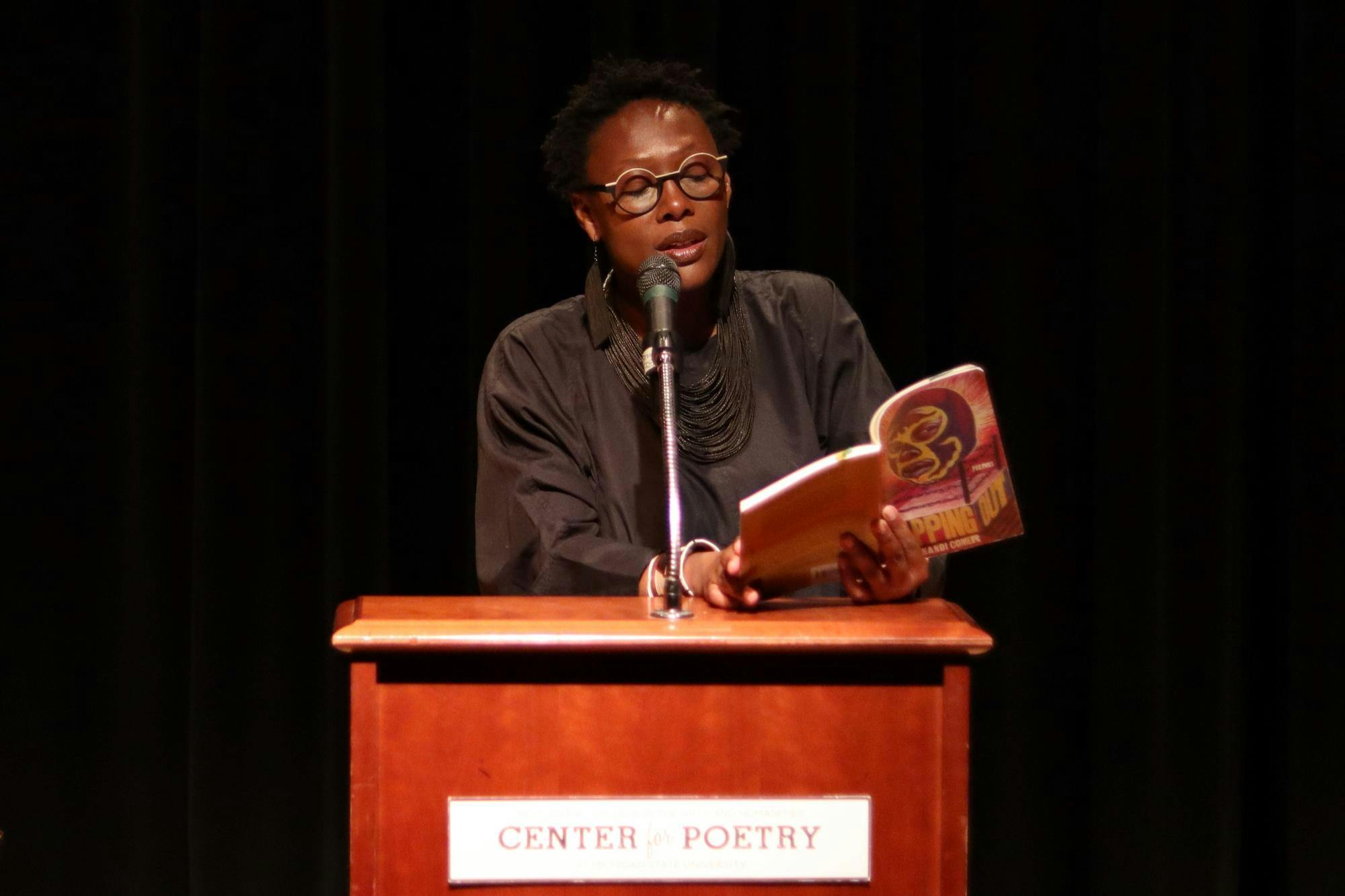The Center for Poetry hosted Poet Laureate of Michigan Nandi Comer Thursday, Oct. 19. Comer read pieces from her two books as well as some new poems she has been working on, engaging with the audience in discussion of art and storytelling.
Comer was named Michigan's poet laureate this year after years of running poetry and art programs in Detroit such as Techno Poetics and Detroit Lit.
Comer performed pieces from her books, "American Family: A Syndrome" and "Tapping Out (Triquarterly)."
Comer talked about how poetry is a more accessible art form for individuals interested in artistry. She said poetry is historically one of the ways individuals use language to convey emotions.
“Poetry tends to be one of the things that people turn to in the most important times of our lives,” Comer said.
She spoke on how poetry can commemorate celebratory events like graduations or weddings, and how it also is written occasionally for sadder moments such as funerals.
“I see art as self expression in general, and poetry to me is a very personal, vulnerable form of self expression," second year Ph.D. program economics student Madeleine Smith said at the event.
Comer and Smith both talked about the vulnerability connected to poetry.
Comer said “to put words to the things we most feel deeply" allows words to express the feelings that may not be digestible in a form other than poetry.
“Poetry is kind of like a prayer," Smith said. "It’s something I always go back to. It's sort of like a meditative exercise to read poetry for me, and also to write poetry.”
Arts and humanities writing and Indigenous studies junior Jo Troxell also attended the event, and said poetry is a way to express your emotions and feelings through an art form that "isn’t as strict or intimidating as a painting or drawing.”
Smith was intrigued by the event because she wanted to improve her own poetry reading and writing. She also wanted to be around individuals who appreciate the art form that is poetry.
Troxell talked about how poetry pairs well with other types of art forms; such as a poem paired with a painting or a drawing. She also said poetry is whatever art you make it.
Comer discussed throughout her readings how she allows the writing to decide what it needs to be – whether that be a short story, an essay or even a poem.
“It's not necessarily in the crafting of poetry that keeps me going or draws me in," Comer said.
Comer talked about how she aspires to write things to have some kind of influence. She said this is prevalent through her pieces in her two poetry collections.
“The evidence of other writers having done something so compelling (is what) changes me," Comer said.
This is what inspires Comer to keep writing poetry, she said. Comer said reading poetry presents to her something that she may have never thought before until reading it.
Comer said this is what she hopes to accomplish through writing her poems.
“Hearing a poet read their poetry is a vulnerable, shared experience," Smith said about hearing Comer perform. Smith also said hearing a poem can bring a new meaning to the listener.
Support student media!
Please consider donating to The State News and help fund the future of journalism.
Troxell explained that hearing the poet's voice and how they read the poem allows the poetry to come to life and contain more personality than reading words on a page.
Reading a poem out loud doesn’t only help the audience and the reader, but it also can help the poet.
“Part of understanding that a poem was done was that I needed to read it out aloud to other people and see if they were hearing what I thought was coming across," Comer said.
Discussion
Share and discuss “ Poet Laureate of Michigan Nandi Comer reads at MSU Center for Poetry ” on social media.







